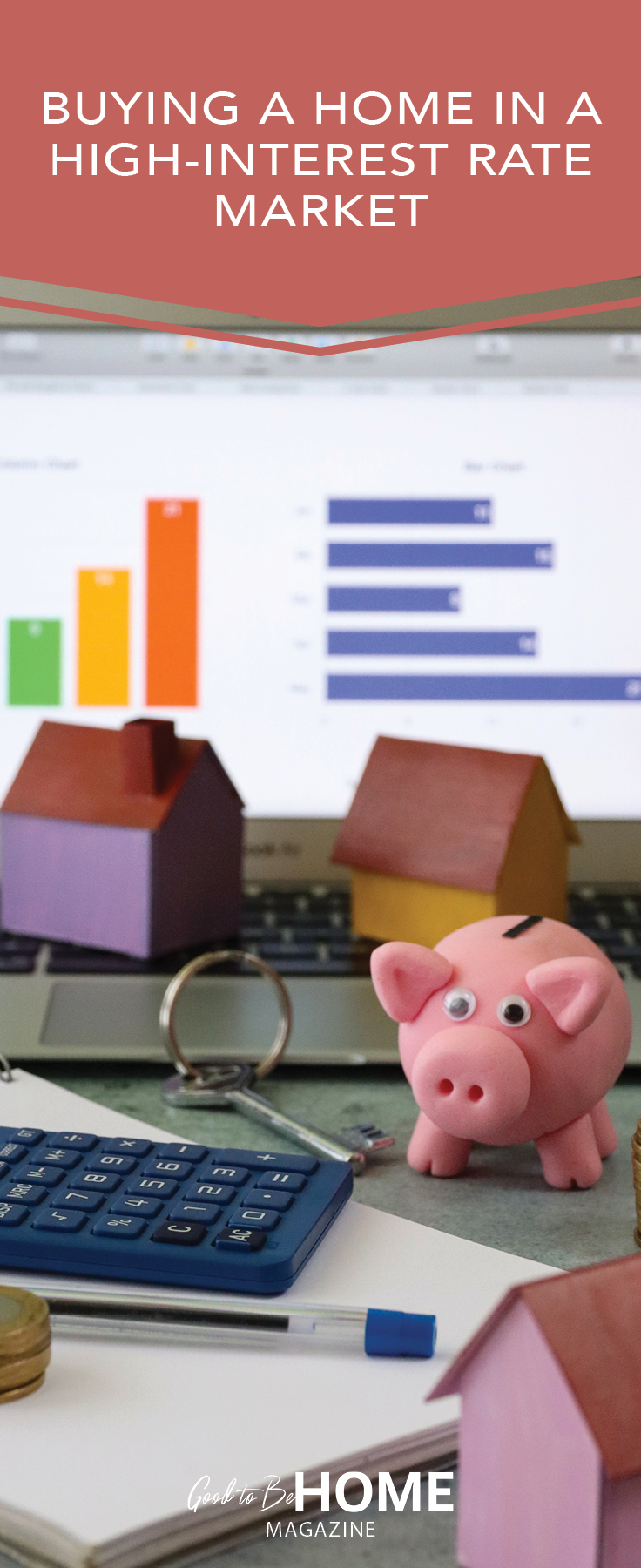Buying a Home in a High-Interest-Rate Market
For the first time in twenty years, the 30-year conventional fixed-rate mortgage—by far the most popular type of loan—jumped to over 7 percent. This steep rise in mortgage rates is a tactic the Federal Reserve uses to help combat inflation and with the most recent aggressive interest rate hikes (the third in just one month), buyers may be contemplating what is on the horizon.

What does this mean for homebuyers?
Although several cities in the south like Miami, Jacksonville, Richmond, and Virginia Beach are enjoying an uptick in home pricing, the spike in mortgage rates is driving down homebuyer demand in all four regions of the country. The overall drop in pending sales was 10.2 percent since July—the fourth consecutive month. Places like Austin, Phoenix, Denver, and Portland, as well as all major California cities, have experienced a significant deceleration in prices during this time, with San Jose having a double-digit decline. New home builders experienced a 10.9 percent contraction in sales, resulting in a 13.6 percent increase in supply— or 9.2 months’ worth of inventory. This means the new home market favors buyers, as there is more than a seven-month supply of homes.
Due to the market shift, housing experts anticipate pricing will continue to moderate through the end of 2022 and drive more sales during 2023 as the market becomes even more favorable for buyers. In addition, since new home builders have also had a significant decline in new home building sales, they will likely offer incentives to entice buyers to purchase.
Is it time to stop renting and buy?
Renting is becoming less desirable for many people due to the rapid rise in rental costs. In fact, it’s expected that the cost of rent will surpass the rate of inflation and rental market growth will surpass the rate of inflation and home values during the next twelve months. Therefore, if you are currently renting and have been considering entering the buyer pool, you may want to consider pushing up your purchasing timeline even if your spending power is reduced. Economists expect higher interest rates, at least for the foreseeable future, because the Federal Reserve has no plans to reduce rates until inflation is under control. Postponing purchasing a home may not be in your best financial interest as homeownership builds equity and net worth, while renting does not.

What’s the best way to position yourself in a high-interest-rate market?
One of the most important things you can do when trying to qualify for a mortgage is to take command of your credit score. This starts with tracking your credit score each month. Although rising interest rates are not in your control, your credit score is. If it’s on the lower end, make every effort to reduce your debt; do not open any new cards, take a personal or car loan, or cosign on any loans; be timely with payments on all revolving accounts; remove delinquencies or anything that is considered as a collection and research and resolve anything that seems questionable.
Be aware that your score will matter even more as interest rates continue to rise since a favorable interest rate is contingent on your credit history. With a higher score, lenders will view you as a better risk. For example, based on rates as of November 2022, if your credit score is 760, your interest rate would be 6.59 percent, compared to 8.18 percent if your score is 620. Therefore, a $320,000 loan would save you $346.00 per month—that’s $124,560 over the life of a 30-year conventional fixed-rate loan.
Also, paying down any high-interest credit cards will mean less interest as the debt decreases, which can help you to pay your debts off sooner rather than later. Consider refinancing any debts that are tied to the index rate, such as a car loan, a personal or home equity loan, or high-interest credit cards. Shop around for the best rates from multiple lenders and consider applying for a shorter-term loan, which typically offers lower interest rates.
With the interest rates skyrocketing, you may need to be a bit more flexible if you want to purchase a home. Regional pricing will also likely influence where you move based on affordability, so be sure to do your due diligence and consult with your real estate agent for guidance.


















